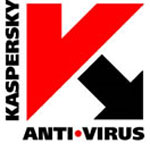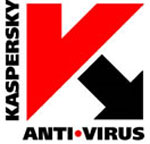Kaspersky Lab's spam in May report: free online games targeted

Terrorism as a cover for cybercrime
In May, spammers actively used current hot topics in the news to deceive users. In particular, a surge in the number of messages was detected exploiting the news of the death of Osama bin Laden. Such messages contained malicious files as well as links to legitimate payware. News of the death of the world's No. 1 terrorist was even used in the emails of the so-called Nigerian scammers. The trick they used to attempt to extract funds generally stayed the same - the scammers request payment of a small sum with the promise of being returned a much bigger sum in the future. Worthy to note is the fact that instead of traditional requests for "help", in a new type of email users are threatened with their accounts being frozen on the pretext of suspicions that somehow they are connected with terrorists.
Malware in spam: Personal data theft and fake antivirus programs
Russia has become the world leader in terms of the quantity of malware found in emails detected by antivirus programs. The USA, formerly taking first place, now comes second - the quantity of infected emails sent to American users fell by 3.5 percentage points. The most widespread malware distributed via email was the Trojan-Spy program Trojan-Spy.HTML.Fraud.gen. Worms like Email-Worm.Win32.Mydoom.m, Email-Worm.Win32.Bagle.gt and Email-Worm.Win32.NetSky.q all remained high in the ratings, while newcomers included two Trojan-Downloader.Win32.FraudLoad Trojans. This type of program installs fake antivirus programs on PCs.
Online games becoming more attractive to phishers
The most marked changes took place in the ratings of web services attacked the most with the use of phishing emails. 4.67% of all phishing emails were intended to steal passwords for the popular free online game RuneScape. As a result, this platform made its debut in the top ten straight in at No. 3 - way ahead of World of Warcraft - the most popular online game in the world. RuneScape is of interest to cybercriminals more than even user details of the popular social networking site Facebook. However, the overall leader in the rating remained the payment system PayPal, which saw a small rise in the number of phishing emails (23.28 percentage points up on the figure for April 2011).
The full version of spam activity for May 2011 is available at: www.securelist.com/en.
Source: Kaspersky Lab

Kaspersky Lab is reputed to be the largest antivirus company in Europe. It delivers some of the world’s most immediate protection against IT security threats, including viruses, spyware, crimeware, hackers, phishing, and spam. The company is ranked among the world’s top four vendors of security solutions for endpoint users. Kaspersky Lab products are designed to provide superior detection rates and one of the industry’s fastest outbreak response times for home users, SMBs, large enterprises and the mobile computing environment. Kaspersky technology is also used worldwide inside the products and services of the industry’s leading IT security solution providers.
Go to: http://www.kaspersky.com








